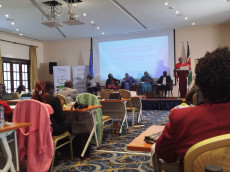- The consequences of unbridled freedom extend beyond personal struggles. Many students face academic repercussions as a result of their choices—missing exams or failing courses due to negligence.
Entering campus is often met with a sense of pure joy and excitement, a feeling that radiates through the smiling faces of new students on admission day. The first week is a whirlwind of exploration, adaptation, and forging new friendships—a rite of passage that marks the beginning of a transformative journey.
However, this newfound freedom can be a double-edged sword. Many students misinterpret the concept of campus life as an open invitation to live recklessly, leading to situations that can have serious consequences.
The allure of “kupiga sherehe” (partying) becomes synonymous with freedom for some, as they revel in the knowledge that their parents and professors are no longer watching over them. This sense of liberation often leads to unhealthy lifestyle choices, overshadowing the academic responsibilities that brought them to university in the first place.
The aftermath of such choices can be harsh. Consider the scenario: a student attends a party, finds a romantic partner, and after a few weeks discovers infidelity. The emotional fallout can be overwhelming, often spiraling into depression and stress. In a bid to cope, many turn to alcohol, mistakenly believing that it will alleviate their pain. This cycle of escapism can have detrimental effects on both mental and physical health.
The consequences of unbridled freedom extend beyond personal struggles. Many students face academic repercussions as a result of their choices—missing exams or failing courses due to negligence. The painful reality of having to retake a course, after investing time and money, can be disheartening. It raises questions about the impact on families who support their education, only to witness their loved ones falter due to poor decisions.
Read More
While it’s crucial to learn from mistakes, many of the missteps made during this pivotal time stem from ignorance rather than intent. Students must learn to navigate their newfound freedom wisely, balancing enjoyment with responsibility.
Ultimately, campus life should be a time for growth and self-discovery, not a path to self-destruction. By harnessing their freedom in a mindful way, students can create a fulfilling university experience that honors both their ambitions and their well-being.












